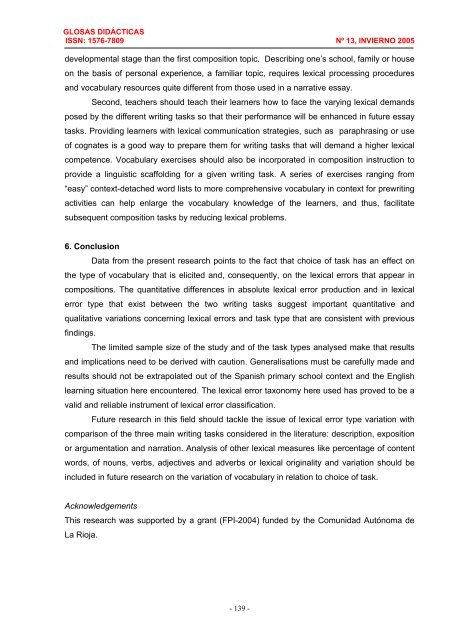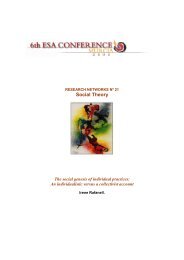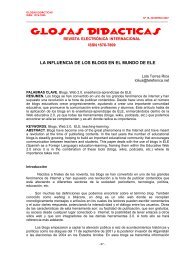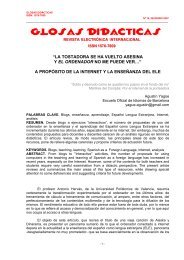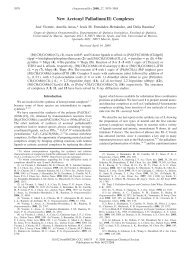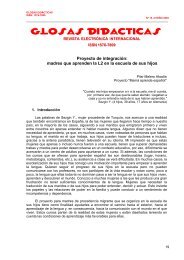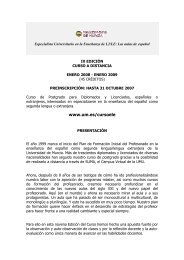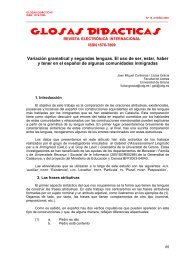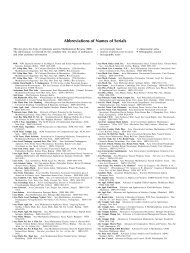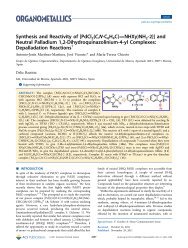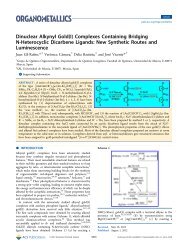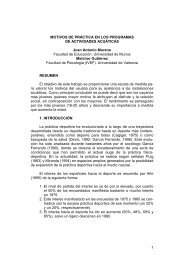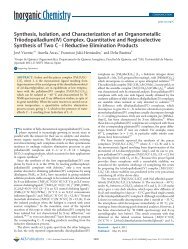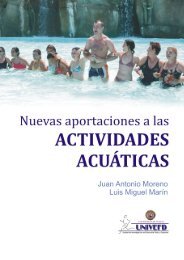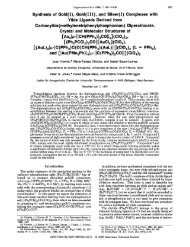descarga del número 13 de glosas didácticas completo
descarga del número 13 de glosas didácticas completo
descarga del número 13 de glosas didácticas completo
You also want an ePaper? Increase the reach of your titles
YUMPU automatically turns print PDFs into web optimized ePapers that Google loves.
GLOSAS DIDÁCTICAS<br />
ISSN: 1576-7809 Nº <strong>13</strong>, INVIERNO 2005<br />
<strong>de</strong>velopmental stage than the first composition topic. Describing one’s school, family or house<br />
on the basis of personal experience, a familiar topic, requires lexical processing procedures<br />
and vocabulary resources quite different from those used in a narrative essay.<br />
Second, teachers should teach their learners how to face the varying lexical <strong>de</strong>mands<br />
posed by the different writing tasks so that their performance will be enhanced in future essay<br />
tasks. Providing learners with lexical communication strategies, such as paraphrasing or use<br />
of cognates is a good way to prepare them for writing tasks that will <strong>de</strong>mand a higher lexical<br />
competence. Vocabulary exercises should also be incorporated in composition instruction to<br />
provi<strong>de</strong> a linguistic scaffolding for a given writing task. A series of exercises ranging from<br />
“easy” context-<strong>de</strong>tached word lists to more comprehensive vocabulary in context for prewriting<br />
activities can help enlarge the vocabulary knowledge of the learners, and thus, facilitate<br />
subsequent composition tasks by reducing lexical problems.<br />
6. Conclusion<br />
Data from the present research points to the fact that choice of task has an effect on<br />
the type of vocabulary that is elicited and, consequently, on the lexical errors that appear in<br />
compositions. The quantitative differences in absolute lexical error production and in lexical<br />
error type that exist between the two writing tasks suggest important quantitative and<br />
qualitative variations concerning lexical errors and task type that are consistent with previous<br />
findings.<br />
The limited sample size of the study and of the task types analysed make that results<br />
and implications need to be <strong>de</strong>rived with caution. Generalisations must be carefully ma<strong>de</strong> and<br />
results should not be extrapolated out of the Spanish primary school context and the English<br />
learning situation here encountered. The lexical error taxonomy here used has proved to be a<br />
valid and reliable instrument of lexical error classification.<br />
Future research in this field should tackle the issue of lexical error type variation with<br />
comparison of the three main writing tasks consi<strong>de</strong>red in the literature: <strong>de</strong>scription, exposition<br />
or argumentation and narration. Analysis of other lexical measures like percentage of content<br />
words, of nouns, verbs, adjectives and adverbs or lexical originality and variation should be<br />
inclu<strong>de</strong>d in future research on the variation of vocabulary in relation to choice of task.<br />
Acknowledgements<br />
This research was supported by a grant (FPI-2004) fun<strong>de</strong>d by the Comunidad Autónoma <strong>de</strong><br />
La Rioja.<br />
- <strong>13</strong>9 -


